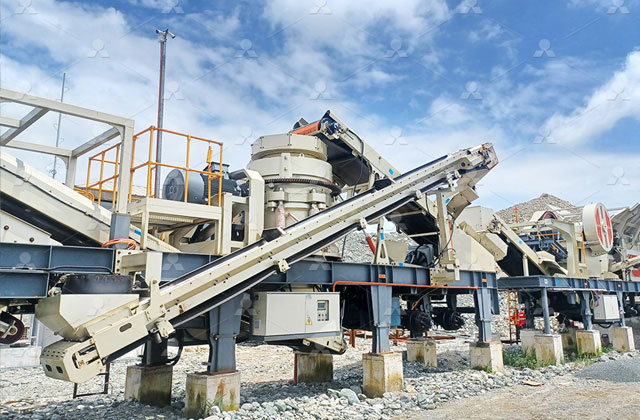Mobile crushers are a type of mining and construction equipment designed to crush stones, rocks, or other materials for various applications. They are widely used in industries such as mining, metallurgy, building materials, transportation, energy, and chemical engineering. The primary advantage of mobile crushers is their flexibility, allowing them to move from one site to another, making them suitable for on-site crushing operations.

1. Types of Mobile Crushers: Mobile crushers come in various types, each designed for specific applications. Common types include:
- Jaw Crushers: These crushers use a fixed jaw and a movable jaw to compress and crush materials.
- Impact Crushers: They use impact force to crush materials, making them suitable for materials with higher abrasiveness.
- Cone Crushers: These crushers are used for secondary and tertiary crushing, and they operate by squeezing materials between an eccentrically gyrating cone and a concave hopper.
- Screening Plants: Often used in conjunction with crushers, screening plants separate materials based on size.
2. Key Components:
- Crusher Chamber: The space where the materials are crushed.
- Feeder: Transports material to the crusher.
- Conveyor Belts: Transport crushed material to different stages of the process.
- Engine/Power System: Provides the necessary power for the crusher’s operation.
- Control Panel: Allows operators to control and monitor the crusher.
3. Mobility and Portability: One of the primary advantages of mobile crushers is their mobility. They are mounted on tracks or wheels, allowing them to be easily transported to different sites. This mobility enhances efficiency by reducing the need for material transportation, especially in large construction and mining projects.
4. On-Site Crushing Benefits:
- Cost Efficiency: On-site crushing reduces transportation costs, as materials can be crushed at the extraction site, minimizing the need for transporting raw materials to processing plants.
- Time Savings: Mobile crushers enable quick setup and dismantling, reducing the time required for a project.
- Environmental Impact: By crushing materials on-site, the environmental impact associated with transportation is reduced.
5. Remote Operation and Monitoring: Many mobile crushers come equipped with remote monitoring systems and sensors that allow operators to control the equipment from a distance. This feature enhances safety and operational efficiency.
6. Application Areas:
- Mining: Mobile crushers are extensively used in mining operations for processing ore and extracting minerals.
- Construction: They play a crucial role in construction projects by processing and recycling construction waste.
- Quarries: Mobile crushers are used in quarries to crush and process various types of rocks.
7. Challenges:
- Maintenance: Mobile crushers require regular maintenance to ensure optimal performance.
- Regulatory Compliance: Depending on the location, there may be regulations regarding noise, dust, and emissions from mobile crushing operations.
8. Technological Advances:
- Automation: Advances in automation technology have led to more efficient and safer crusher operations.
- Energy Efficiency: Ongoing efforts to improve energy efficiency in mobile crushers contribute to reducing operational costs.
In conclusion, mobile crushers are versatile and efficient equipment widely used in various industries for on-site crushing. Their ability to move easily between locations, coupled with technological advancements, makes them integral to modern construction and mining operations. As technology continues to evolve, mobile crushers are likely to become even more sophisticated, addressing current challenges and further improving their performance.
